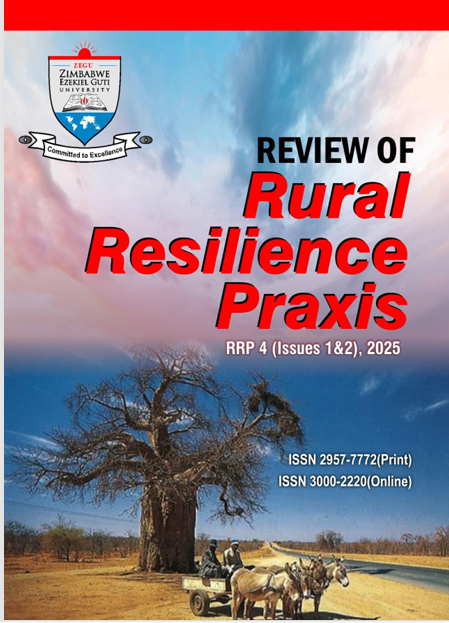Chiefs and Headman Courts in Zimbabwe: Some Administrative and Ethical Considerations for Improvement
DOI:
https://doi.org/10.71458/kyb3mn28Keywords:
colonisation, Africa, human rights, censorship, judiciary system, technologyAbstract
The study critically examines chiefs’ and headmen’ courts in Zimbabwe and seeks to establish the administrative and ethical challenges they encounter, with a view to improving their approach to governance. Traditional chiefs and headmen are part of the African governance system that was in existence prior to the colonisation of Africa. These were weakened during colonial times, serving only at the behest of colonial governments. In the post-colonial era, chiefs and headmen were moved into the judiciary system and local government in Zimbabwe as their role was ceremonial during the colonial rule. The study problematises the ethical and administrative shortfalls of traditional courts in Zimbabwe with chiefs coming under scrutiny for human rights violations and unethical conduct. The study utilises a qualitative research methodology with a case study research design to understand the operation of traditional leaders in their courts. The study employs secondary information as the data collection method, using newspaper reports. The study further utilises the thematic data analysis method. The findings indicate that traditional courts have become shrines of revictimisation and re-traumatisation of victims in Zimbabwe due to the use of social media without censorship. The study concludes that embracing technology in traditional courts has created challenges and ambiguities as they have led to disintegration of these courts into centres of vulgarity. The study recommends censorship of traditional court cases on social media.




